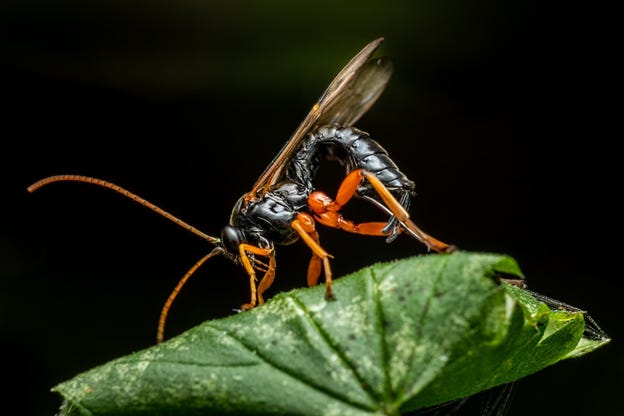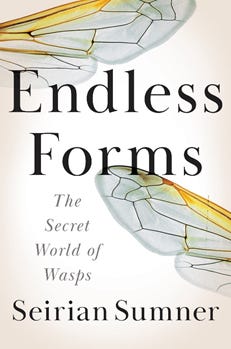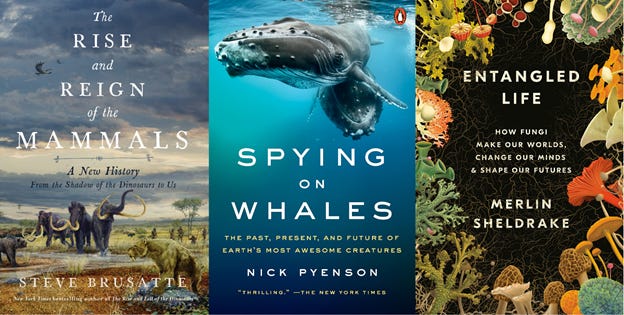When most people think of wasps they think of hornets and yellow jackets – menacing, stinging insects that are a burden. In contrast, their close cousins – the bees – are subject of conservation campaigns and calls to “save the bees” because of their fundamental role in nature. Bees are good. Wasps, not so much – we can do without, thank you very much.
But what if we couldn’t? What if wasps are also foundational to nature? What if I told you that their diversity is an evolutionary marvel? What if you knew that wasps might be the most interesting insect on the planet? Don’t believe me? Then take a read of the phenomenal Endless Forms: The Secret World of Wasps by Seirian Summer, a wasp expert and the author of this exposé of the most misunderstood and vilified insect.
I knew little, if anything of substance, about wasps before picking up Endless Forms. And oh how ignorant I was! I suspect most are ignorant of the spectacular world of wasps. There are estimated to be about 5.5. million species of insects on our planet. And among them, beetles are thought to take the cake as the most diverse among them. But wasps may really be queen. Although only about 100,000 species of wasps are known, some estimates suggest that ~2 million species actually exist – a number that would make wasps the most abundant insect on the planet.
Wasps first evolved around 280 million years ago, and about 40 million years later evolved their characteristic taste for meat – other animals. Most wasps are hunters, feasting on other insects. And this is their key role in nature: wasps are effective insect control for the planet. They can even be used as natural, chemical-free pest control in agriculture.
And despite our disgust of wasps and love for bees, bees are “just wasps that forgot to how to hunt and became vegetarian” as Summer quips. Bees evolved from wasps and traded hunting for a pollen lifestyle. Ants also evolved from wasps! They are “wasps that forgot how to fly”.
Another interesting fact is that the vast majority of wasps are solitary. Although our stereotype of wasps are swarming yellow jackets and hornets, these social species make up a tiny fraction of wasps – just 74 species of the known 100,000!
Endless Forms is by far one of the most informative books I’ve ever read on a single animal. Wasps have a PR problem and Summer expertly dispelled the pervasive and inaccurate stereotypes of this fascinating animal. This is a must read for those that want to learn seemingly endless new lessons about insects, evolution, and our understanding of nature.
Published: July 2022
Format: Hardcover
If you think this sounds interesting, bookmark these other great reads:
The Rise and Reign of the Mammals: A New History, from the Shadow of the Dinosaurs to Us by Steve Brusatte (2022)
Spying on Whales: The Past, Present, and Future of Earth's Most Awesome Creatures by Nick Pyenson (2018)
Entangled Life: How Fungi Make Our Worlds, Change Our Minds & Shape Our Futures by Merlin Sheldrake (2020)
This post contains affiliate links, allowing me to earn a small commission when you purchase books from the link provided. There is no cost to you, and this will allow me to keep this newsletter free and open to all. Happy reading!






